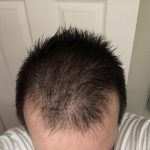Does Ozempic Cause Hair Loss? Unraveling the Truth Behind the Controversy

In recent years, Ozempic has gained considerable attention as a highly effective medication for managing type 2 diabetes and weight loss. However, alongside its many potential benefits, some users have expressed concerns about experiencing hair loss while taking Ozempic. With conflicting information and anecdotal reports circulating online, it’s essential to dive deeper into this subject and separate fact from fiction.
In this article, we will explore the relationship between Ozempic and hair loss, examining the available scientific evidence, potential mechanisms, and considerations for individuals using this medication.
Understanding Ozempic
Ozempic, known generically as semaglutide, belongs to a class of drugs called glucagon-like peptide-1 receptor agonists (GLP-1 RAs). It is prescribed to lower blood sugar levels in people with type 2 diabetes. The medication works by mimicking the actions of the naturally occurring hormone GLP-1, which regulates insulin release, appetite, and digestion. By activating GLP-1 receptors, Ozempic promotes better blood sugar control and weight loss, reducing the risk of complications associated with diabetes.
Hair Loss As a Complex Issue
Before delving into the connection between Ozempic and hair loss, it’s important to note that hair loss, or alopecia, is a multifactorial condition with various underlying causes. These can range from genetic predisposition and hormonal imbalances to nutritional deficiencies, stress, medications, and certain medical conditions. It is crucial to consider these factors before attributing hair loss solely to the use of Ozempic.
Examining Scientific Studies
While researching the link between Ozempic and hair loss, the available scientific literature does not provide a clear consensus. At the time of writing this article, no clinical trials or studies specifically investigating the association between Ozempic and hair loss have been conducted. Consequently, the information we have is limited to anecdotal reports and observations from real-world experiences.
Anecdotal Reports and User Experiences
Online forums and social media platforms have become platforms for people to share their experiences and concerns about medication side effects. A quick search reveals that some individuals have reported hair loss while using Ozempic. However, it’s important to approach anecdotal evidence with caution, as it does not provide scientific validation or establish a direct causal relationship.
Possible Mechanisms
To understand whether Ozempic may contribute to hair loss, it’s essential to explore the potential mechanisms involved. As Ozempic affects glucose metabolism and appetite regulation, any indirect influence on hair health could be related to these changes. For instance, weight loss or changes in nutrient absorption might impact hair follicles, leading to shedding or thinning hair.
According to Dr. Katharine H. Saunders, an obesity medicine physician and co-founder of Intellihealth, it is observed that some patients experience hair loss when they undergo weight loss. However, this hair loss is generally attributed to the weight loss itself rather than being a direct side effect of specific medications. Dr. Saunders, who is also an assistant professor of Medicine at Weill Cornell Medicine in New York City, emphasizes the correlation between weight loss and hair loss rather than implicating medications in this particular scenario. However, further research is needed to elucidate these potential connections and determine their significance.
Consulting Healthcare Professionals
If you are using Ozempic and have concerns about hair loss, it is crucial to consult your healthcare professional. They can evaluate your individual case, considering your medical history, medications, and other potential factors contributing to hair loss. A healthcare provider may recommend alternative treatment options, conduct further investigations, or refer you to a specialist, such as a dermatologist or endocrinologist, for a comprehensive evaluation.
Conclusion
When discussing the relationship between Ozempic and hair loss, it is important to acknowledge that the current evidence is limited and inconclusive. While some anecdotal reports exist, they do not establish a direct causal relationship between Ozempic and hair loss. As hair loss is a complex condition with various contributing factors, it is crucial to consider other potential causes and consult healthcare professionals for an accurate assessment.
If you are using Ozempic and notice hair loss or changes in hair health, it is essential to communicate this with your healthcare provider. They can help determine the underlying cause and provide appropriate guidance. It’s important not to make any assumptions or abrupt decisions without professional advice.
In the meantime, there are general measures you can take to maintain overall hair health:
1. Adopt a Balanced Diet: Ensure you’re getting a well-rounded diet with essential nutrients such as proteins, vitamins (especially vitamin D and biotin), and minerals like iron and zinc, which are important for hair health.
2. Practice Stress Management: High levels of stress can contribute to hair loss. Engage in stress-reducing activities like exercise, meditation, or hobbies to promote overall well-being.
3. Avoid Harsh Hair Treatments: Excessive heat, chemical treatments, and tight hairstyles can damage hair follicles and lead to hair breakage or loss. Opt for gentle hair care practices and avoid unnecessary stress on your hair.
4. Maintain a Healthy Lifestyle: Ensure you get enough sleep, exercise regularly, and avoid smoking or excessive alcohol consumption, as these factors can impact hair health.
5. Be Patient: Hair growth is a slow process, and it may take time to see improvements. Avoid panicking or getting discouraged if you experience hair changes, as they may not necessarily be linked to Ozempic.
Remember, every individual is unique, and their response to medications can vary. While some individuals may have experienced hair loss while taking Ozempic, it is not indicative of a universal side effect. By collaborating with your healthcare provider, you can receive personalized guidance and monitor any potential changes in your hair health.
In conclusion, the available evidence regarding the relationship between Ozempic and hair loss is limited, and anecdotal reports alone are not sufficient to establish a definitive connection. If you have concerns about hair loss while using Ozempic, it is crucial to consult your healthcare provider for a thorough evaluation. They can provide appropriate guidance based on your individual circumstances.





